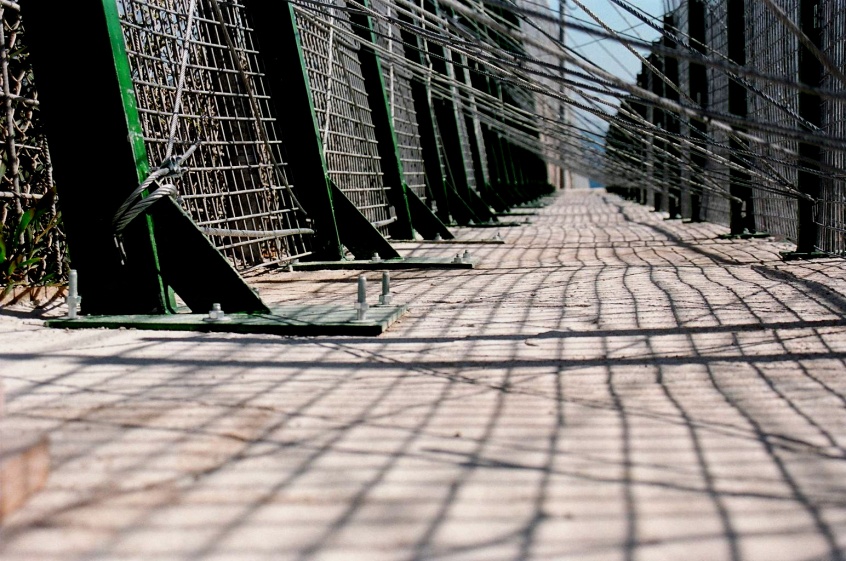The EU states want to increase deportations to Morocco, but the country is not cooperating. Even after a visit by the German interior minister, there was not much more than a non-binding “security agreement”.
“We must finally deport on a grand scale,” was the motto of the German Chancellor Olaf Scholz (Social Democratic Party, SPD) himself in the news magazine “Spiegel”. The editors found this important enough to even print the quote on the front page. However, the fact that the new German toughness is not gaining momentum is also due to the countries of origin or transit from which rejected asylum seekers have entered Europe. These countries, such as Morocco, are often not prepared to take back those who are to be deported or to help in obtaining the necessary papers. This is however required in order to prove that they are nationals of the country of destination for a deportation flight.
In order to persuade the government to improve “readmission cooperation”, the German Interior Minister Nancy Faeser (SPD) flew to Rabat at the weekend. Faeser was accompanied on her two-day trip by Joachim Stamp (Liberal Democratic Party, FDP), whom the current government coalition has appointed as special plenipotentiary for so-called migration agreements. Stamp is in confidential talks with several countries and wants to lure the governments with facilitations for work visas. In return, they are to cooperate better in deportations from Germany.
In the first nine months of this year, 1.246 people from Morocco applied for asylum in Germany for the first time – that is very few compared to the 71.833 Syrians who applied for protection for the first time in this period. The recognition rate of Moroccans who applied for asylum in Germany in the first half of 2023 is also very low at 2.6 per cent. The number of people from the North African country who received limited refugee protection is in a similar range.
De facto, the German foreigners authorities thus assume that there is hardly any persecution in Morocco. However, the country is not officially considered safe. In 2019, the grand coalition of Conservatives and SPD wanted to classify Morocco, together with Tunisia and Algeria, as a “safe country of origin”. The Bundestag had approved the law, but the Left Party and The Greens as well as 11 SPD MPs were against it. In the end, however, the law failed in the Upper House (Bundesrat).
According to the Federal Ministry of the Interior, there are 3.660 Moroccans living in Germany who are obliged to leave the country. Most of them, however, have to be temporarily tolerated for various reasons. Therefore, only 898 Moroccan citizens could be deported at present anyway. They cannot easily be put on a plane with the Federal Police or Frontex officials: The Moroccan government, for example, does not issue landing permits for collective deportations, for which Germany and other EU states would gladly charter planes. Forced deportations or voluntary repatriations are therefore only possible by scheduled flight. The number of “returnees” accepted by Morocco per flight is limited, and these may only be carried out by certain airlines.
As an “incentive” for more deportations, Faeser had offered the government in Morocco to facilitate the issuing of visas for Moroccan workers. The Federal Minister of the Interior, however, had another concern: Rabat should also cooperate with the EU with regard to border protection and the fight against terrorism. The model for this is the government in Tunis, with which the EU Commission signed a memorandum of understanding on its own initiative and without involving the 27 member state governments, and in return wanted to spend €255 million on migration defence there.
However, Faeser was unable to extract more than a non-binding “security agreement” from the government in Morocco. With her counterpart, Abdelouafi Laftit, she signed a corresponding declaration of intent in the capital Rabat on Monday. Morocco also wants to accept substitute papers issued in Germany for “returnees” in order to facilitate deportations, the newspaper “FAZ” has learned.
The EU is also trying to improve joint migration defence with Rabat. In order to make deportations and readmissions smoother in future, the Commission has sent a “migration liaison officer” to Rabat. He is to ensure that Morocco treats all member states equally when it comes to deportation requests. The Spanish EU Presidency, for example, demands that Moroccan authorities refrain from consular questioning of “returnees” if the EU states provide sufficient proof of nationality.
At EU level, the deportation rate is similarly low as in Germany: last year, 30.745 Moroccan nationals received a return decision, but only seven percent were actually “returned”. According to information from “nd”, this was due to the Moroccan authorities, who also issued travel documents in only 742 cases.
An EU-wide “readmission agreement”, as the Commission would also like to conclude with Morocco, is still not in sight. Presumably the price for this is not high enough for Rabat.
Published in German in „nd“.
Image: Those who made it over the fence in Melilla are now to be deported back to Morocco more quickly (noborder network, CC BY 2.0).





Leave a Reply